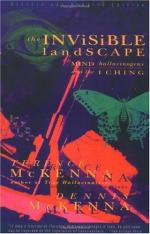|
This section contains 1,049 words (approx. 4 pages at 300 words per page) |

|
A hallucinogen is any substance that causes hallucinations (the experience of seeing, hearing, feeling, smelling, or tasting things that are not actually present). A variety of medicines and illegal drugs can lead to the development of hallucinations. Hallucinogenic drugs disrupt the brain's ability to process information and perceive the real world. A person who takes a hallucinogen may experience dreamy illusions (things that are not really there) or disturbing delusions (distortions of reality). Visual hallucinations range from simple (e.g., flashes of light) to elaborate visions. Auditory (hearing) hallucinations can be noises, a voice, or several voices carrying on a conversation.
Hallucinogenic Drugs
Hallucinogenic drugs can be placed in two major groups, depending on their chemical structure. The first group includes drugs made from lysergic acid, such as lysergic acid diethylamide (LSD) and dimethyltryptamine (DMT). LSD is one of the most potent hallucinogens. During an LSD "trip," the...
|
This section contains 1,049 words (approx. 4 pages at 300 words per page) |

|


